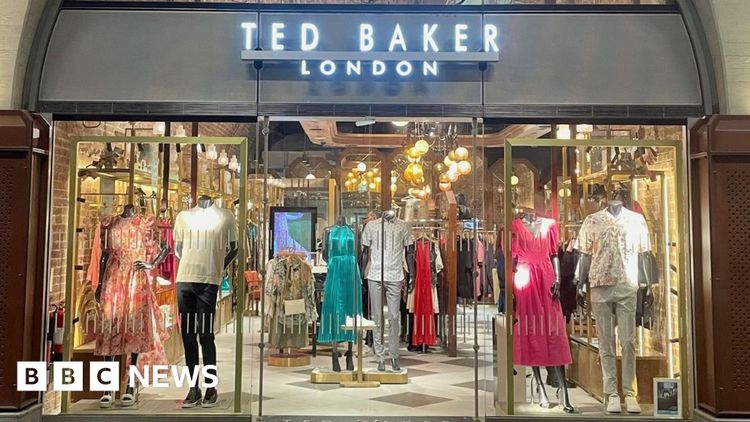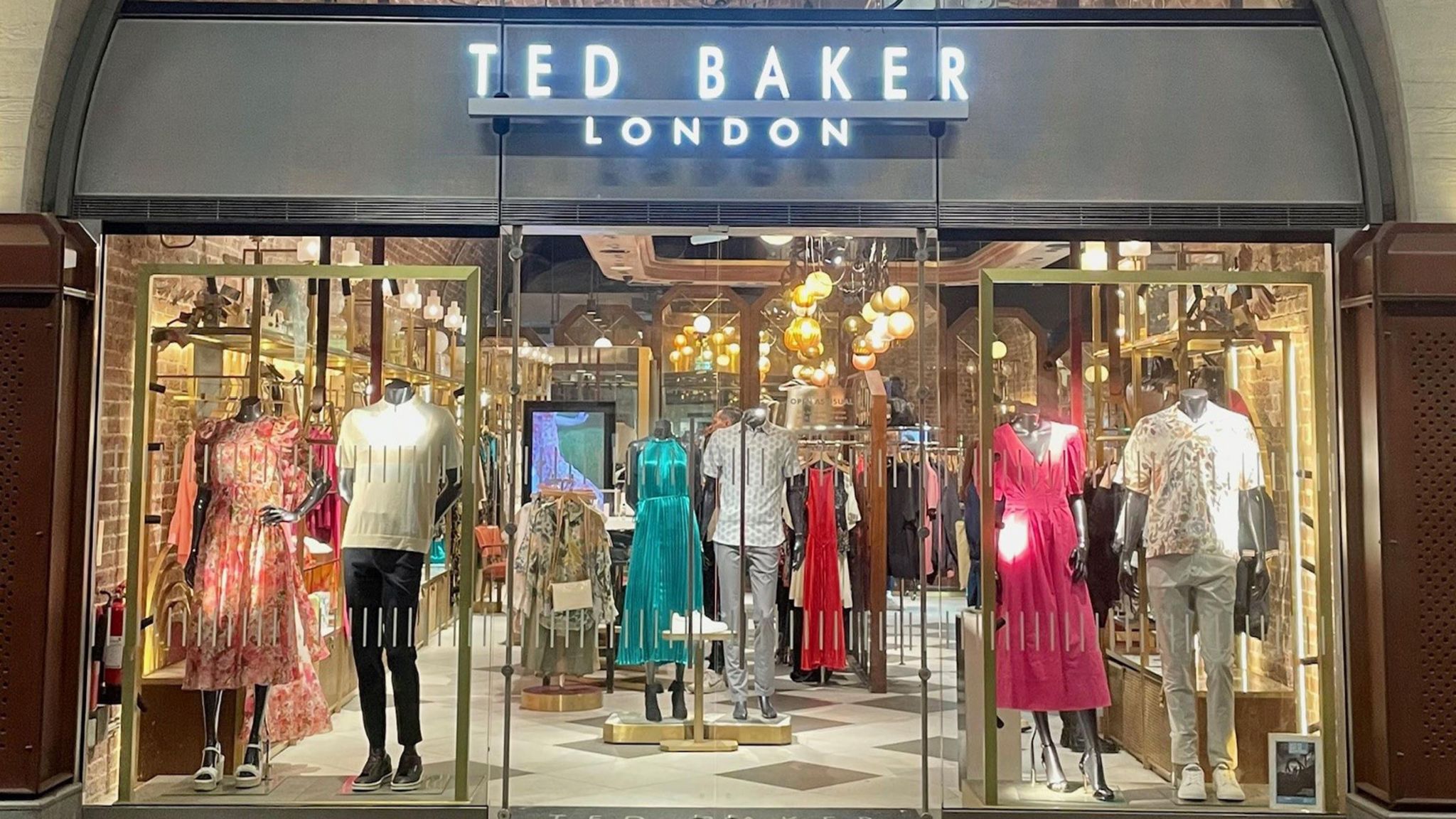Ted Baker: What went wrong for the British fashion label?

Ted Baker was established as a brand focusing on men's clothing in Glasgow in 1988.
Ted Baker, a well-established presence in UK shopping areas since the late 1980s, is now the newest victim of the challenges that traditional physical stores are currently dealing with.

Famous for its unique advertisements and distinct flower patterns, the brand has always been associated with British style and tradition.
In the past few years, it has encountered significant obstacles like intense competition, the move towards e-commerce, and the exit of its creator Ray Kelvin.
The company will be shutting down its last remaining stores this week, which means that over 500 jobs in the UK may be in jeopardy.
"This brand is well-known for its unique and instantly recognizable design," said Diane Wehrle, an expert in retail and the CEO of Rendle Intelligence and Insights, in an interview with the BBC.
Throughout its 36-year existence, the brand has faced tough competition from other high-end fashion retailers on the High Street like Reiss, Whistles, Mango, and Massimo Dutti. These competitors have gradually taken some of the brand's market share over the years.
The company has had to navigate through tough competition while dealing with high operating costs, as it has about 1,000 workers spread out over 46 retail locations, pop-up shops, and the online store.
However, its biggest mistake? Not keeping up with what consumers prefer.
Picture credit, Getty Images.
Exhausted Shoppers
"Ms. Wehrle mentioned that the floral design that the company was known for over the past thirty years had become outdated for modern consumers."
Ms Wehrle mentioned that the brand's "unsteadiness and negative media image" have been made worse by accusations of misconduct against its founder, which have also affected sales.
The person who started the company, Ray Kelvin, gave up his position as the main boss in March 2019 because people said he acted in a way that was not appropriate. He said these accusations were not true.
The person who took over after him, Lindsay Page, and the person in charge, David Bernstein, both stepped down towards the end of 2019 because the company announced it was not making as much money as expected.
Ted Baker began as a men's clothing company in Glasgow back in 1988. Over time, they expanded their presence to include stores throughout the UK and in the US. They also have licensing deals for stores in various cities across Asia and the Middle East.
Danni Hewson, who leads the financial analysis team at AJ Bell, informed the BBC that Ted Baker experienced significant triumph during the 1990s and early 2000s by offering highly desirable products for special events.
"Adolescent boys purchased their inaugural formal attire for prom, young women in their twenties selected distinctive floral patterns to don at their friend's wedding, and festive stockings were filled with branded perfumes and creams," she stated.
However, she believes that the appeal of the brand started to diminish as it grew in popularity, and when people realized during lockdown that they could choose comfortable athleisure clothing instead of dressing formally, it became difficult for the brand to distinguish itself.
She mentioned that the retail industry can be tough, especially in the fashion sector.
"What resonates with buyers during one season may not be as popular in the next, and the rise of social media has increased the importance of staying fashionable."
Many other well-known brands have faced similar challenges. Despite still being a part of larger online platforms, names like Karen Millen and Coast no longer have the same level of brand awareness they used to.
Susannah Streeter, who is in charge of money and markets at Hargreaves Lansdown, mentioned that larger companies like Next and M&S were successful in adapting to the times by expanding their digital presence and offering more casual options. On the other hand, Ted Baker struggled to keep up with the changing market trends and was unable to make necessary changes.
She mentioned that when Authentic Brands Group acquired Ted Baker in 2022, there were "great expectations of a comeback, but the necessary funds to revitalize the brand never came through".
The struggle to afford expenses has put pressure on customers' finances, negatively affecting brands targeting the mid-market segment.
The company that operated Ted Baker's stores in the UK, known as No Ordinary Designer Label (NODL), went into administration in March of this year.
An American company called Authentic Brands Group is the owner of the rights to Ted Baker's intellectual property, while NODL served as the parent company for the brand in the United Kingdom.
When NODL fell apart, Authentic stated that the negative impact caused by partnering with another company was too significant to recover from.
Authentic has been discussing with other retailers about a potential licensing agreement for the brand.
Reports indicate that the discussions have come to a halt, leaving the fate of the Ted Baker brand uncertain for the time being.









































































